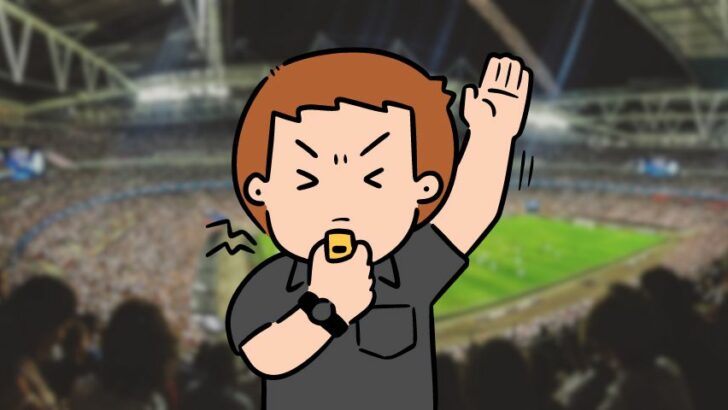In the vibrant world of football, language plays a crucial role in connecting players, fans, and officials from every corner of the globe.
This particularly comes into play during major international tournaments, such as the FIFA World Cup.
An often overlooked yet essential role in these events is that of the referee.
A question that often arises in this context is, “Do World Cup referees need to speak both team’s languages?”
Let’s delve into the linguistic requirements for World Cup referees.
Do Referees Need to Speak Both Team’s Languages?
World Cup referees do not need to speak both teams’ languages. However, proficiency in English is mandatory as it is the universal language of football communication. Other language skills can be beneficial but are not required.
Referees have the challenging job of maintaining order and fairness in a game filled with players from diverse linguistic backgrounds.
The universal language for football referees is English.
The Federation Internationale de Football Association (FIFA), the international governing body for football, requires that all referees can understand and effectively communicate in English.
While it’s not a requirement, understanding the teams’ languages can certainly be an advantage.
It allows the referee to understand any disputes or conversations that happen on the field, thus offering a more in-depth insight into the game dynamics.
However, it’s not just about English. FIFA, the governing body of football, operates in four official languages: English, Spanish, French, and German.
Hence, knowledge of these languages can certainly be beneficial for referees, but it’s not a strict requirement.
The referees of the last five World Cup tournaments provide a vivid illustration of this. Their countries of origin, and hence presumably their first languages, vary widely:
- 2022 (Qatar) – Szymon Marciniak (Poland)
- 2018 (Russia) – Néstor Pitana (Argentina)
- 2014 (Brazil) – Nicola Rizzoli (Italy)
- 2010 (South Africa) – Howard Webb (England)
- 2006 (Germany) – Horacio Elizondo (Argentina)
Speaking of languages and football, you might be interested in learning about Lionel Messi’s language skills.
That being said, many referees do learn the basics of several languages to help in their professional careers.
But the most crucial language a referee must master is the language of signs.
Referees use a universally recognized set of signs and signals to communicate their decisions on the field.
This sign language allows them to transcend linguistic barriers and convey their decisions clearly to players, coaches, and spectators.
Language Requirements for World Cup Referees
[table id=66 /]In the realm of international football, language plays a pivotal role. While referees do not need to speak both teams’ languages, understanding English and the language of signs is key to their role on the field.
Whether you’re an aspiring referee or a football fan, this gives an intriguing insight into the linguistic challenges that come with refereeing at a World Cup.
Frequently asked questions about the language requirements for World Cup Referees
Why is English the Universal Language for Football Referees?
English is the chosen universal language because of its widespread use and understanding around the globe. It ensures a standard language base for all referees.
Do Referees Learn the Basics of Other Languages?
Some referees choose to learn the basics of other languages to facilitate communication with players, but this is not a requirement.
Are There Standardized Signs Used by Referees?
Referees use a universally recognized set of signs and signals to convey their decisions on the field. This helps transcend linguistic barriers.
How Important is Language Proficiency in a Referee’s Career?
Language proficiency, particularly in English, is crucial in a referee’s career. It enhances communication, reduces misunderstandings, and ensures a smoothly run game.

Hey fellow Linguaholics! It’s me, Marcel. I am the proud owner of linguaholic.com. Languages have always been my passion and I have studied Linguistics, Computational Linguistics and Sinology at the University of Zurich. It is my utmost pleasure to share with all of you guys what I know about languages and linguistics in general.

